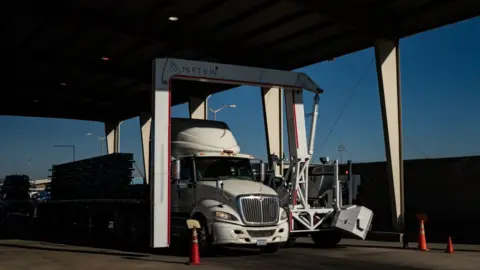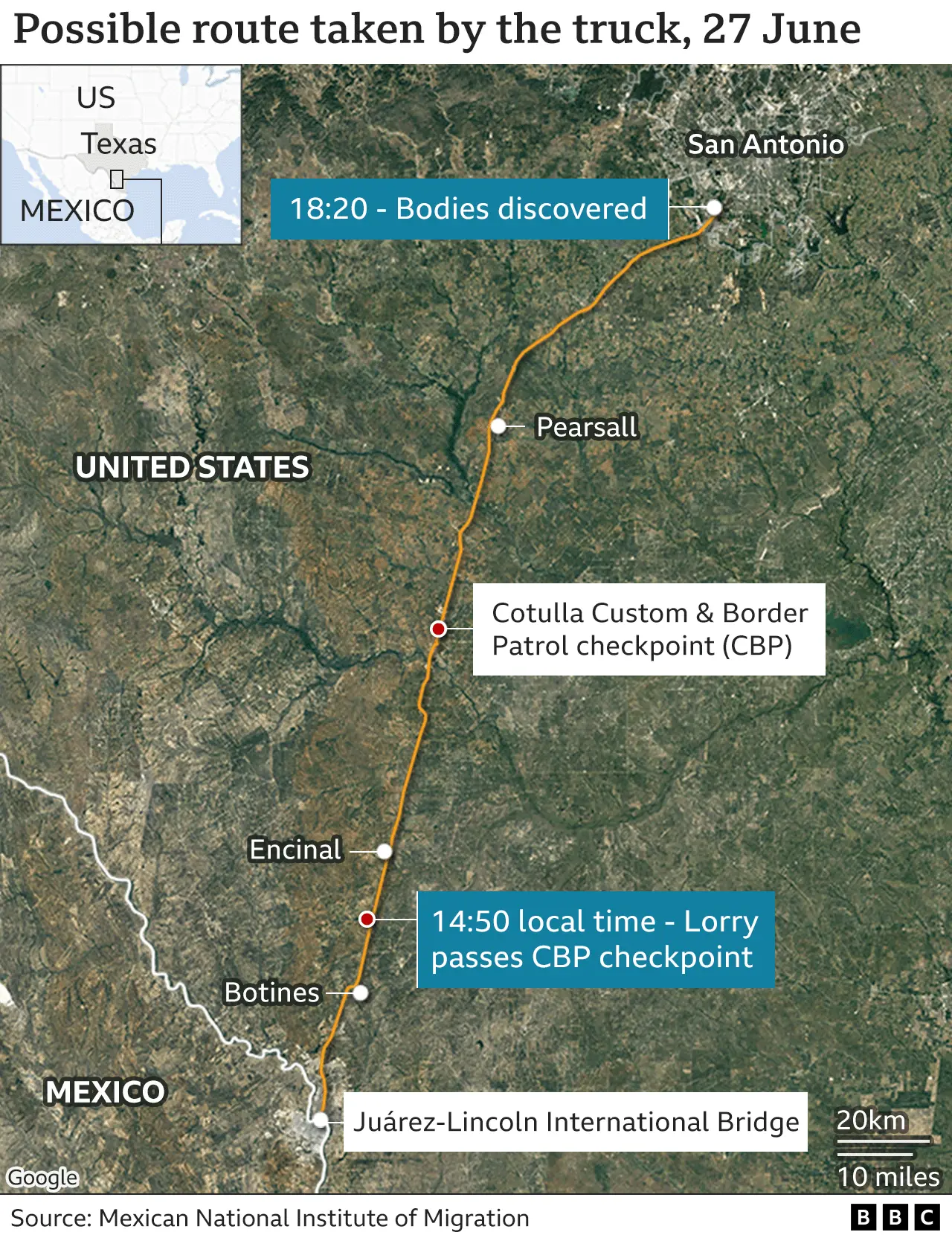Smuggling 'a big business' along US-Mexico border, says trucker
 Getty Images
Getty ImagesThe lure of easy money from human traffickers is sometimes impossible to resist for US truckers operating near the border, according to one "heartbroken" Mexican-American driver.
"David" - who asked to remain anonymous due to the subject's sensitive nature - said that smuggling migrants "is a big business" in southern US states along the border.
And he said that that death is a constant in the daily smuggling of migrants across that boundary.
One such trip this week ended in tragedy, with 53 migrants found dead in San Antonio, Texas, many of heatstroke and dehydration, after being shut inside a truck in blistering heat without any water.
These deaths, David believes, are unlikely to stop.
In an interview with the BBC World Service's OS, David - whose own father came to the US illegally from Mexico - said truckers who find themselves "in a hard place" in life often accept offers to transport migrants.
"They have to pay for stuff. They have to take care of their families. Sometimes it gets to drastic measures," he said.
"Sometimes...it's people that come from Central America. They come to the US and are based here, [but] then the only way they can make money is by transporting people."

David said that he has himself been repeatedly approached with offers - and that he understands the temptation.
"You see when your friends make money, and see how people are on vacation. You wonder why you're so broke," he said.
"You start looking around for opportunities and sometimes you get offered a lot of money to do something that is dangerous. Something horrendous, at times. Of course, I'll never take that. I'd never want to risk anybody personal harm."
In David's case, the recent deadly incident in San Antonio hit particularly close to home. His father was an immigrant who crossed into the US illegally, eventually being given amnesty in the 1980s during the administration of then-US President Ronald Reagan.
"My father cries when he speaks about it. He didn't eat for four days. He ran from border patrol a bunch of times. He had to hide in a garbage bin for nights. It's something very emotional," he said.
"He had to go through so much to just get here."
These experiences, David added, are still shared by migrants crossing the border every day.
"It's just horrible, the stuff that happens. People die all the time," he said.
"People die of starvation sometimes. People crossing [the Rio Grande, a river that separates the US and Mexico] drown. These people think it's easy to cross over. They come from Guatemala, El Salvador, Bolivia, Mexico. They travel for days and days to get to the border and think it's easy to cross."
According to statistics from the International Organization for Migration, at least 650 migrants died crossing the US-Mexico border in 2021 - the most since it began tracking deaths in 2014.
While the recent incident in San Antonio is the deadliest smuggling attempt on record, it is by far not the only mass casualty event at the border.
In 2003, for example, 19 people were found dead in a dairy truck. Authorities later said that temperatures rose to 78 C (173 F) in the unventilated vehicle.
Survivors later testified that they were forced to crowd around holes they punched in the side of the truck to breathe, and kicked out a signal light in a bid to try get the attention of nearby motorists. The driver - who they said repeatedly ignored the screams for help and banging - was eventually sentenced to 34 years in prison without the possibility of parole.
In another incident in 2017, 39 people were found trapped in a lorry parked near a Walmart in San Antonio. Eight people were found dead at the scene, with another two dying in hospital soon after.
